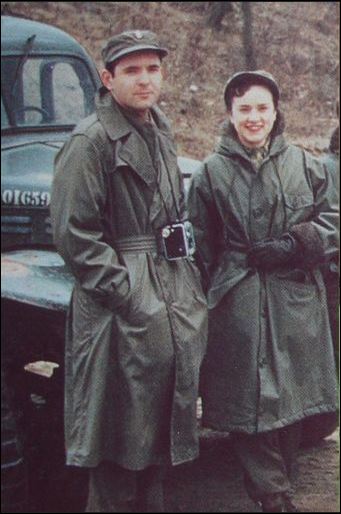
What do you think of when you hear the word “mash?” For most, it is likely “M*A*S*H,” the TV series adapted from the 1970 feature film “MASH.” And that film was based on the 1968 novel “MASH: A Novel About Three Army Doctors” by Richard Hooker.
A mobile army surgical hospital — MASH — is a U.S. Army medical unit serving as a fully-functional hospital in a combat area of operations. The TV show is about a fictional U.S. MASH unit in Korea during the Korean War.
But the Drakes, a couple living in the Villas at Solarbron, a CarDon & Associates community in Evansville, know the non-fiction side of the story — as they helped write the novel based on their lives.
Cathy (McDonough) Drake first went to Korea in 1950 as part of the Army Nurse Corp.
“I was an army nurse stationed in Walter Reed Hospital in Washington, D.C., and I got assigned to the 171st Evacuation Hospital in Korea,” Cathy said. “I went from Fort Bragg to California, and then we sailed to Tokyo. The 171st Evac was a big hospital, and I was sent over to one of the five MASH units they had in Korea.”
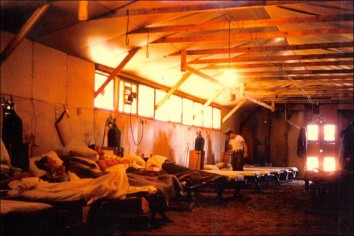
“That’s where one of the doctors, an anesthesiologist, was waiting for his replacement to come, and he told me ‘Now that would be a nice guy for you, Cathy.’” Dale Drake was that replacement. Working as a chief anesthesiologist in Arkansas, Dale had joined the Army Reserve and was given orders for the Far East Command in 1951, where he was assigned to the 8055th unit. And he was a nice guy indeed.
“Oh she was already ready and waiting for me,” Dale laughed. “She had her hooks in after only a couple weeks.”
“Well he was pretty stuffy at first,” she countered. “I had to be the one to make the first move and gave him a great big kiss.”
“We got pretty well acquainted in four months,” Dale said. “In our unit, we had the advantage of many skilled surgeons and physicians. And of all the nurses I worked with, I noticed that Cathy always paid extra special attention to my needs.” The couple met at the 8055th in 1951 and only worked together a few short months before Cathy was rotated back to the U.S., but that’s all it took.
“When Cathy went back to the states, we corresponded for about a year until I finished up my time in South Korea in the MASH unit. When I got home in 1953, we got married in Washington, D.C.”
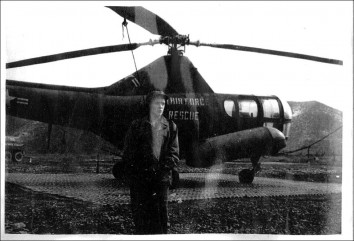
“Our friend from Korea was living in Evansville, and he knew I wanted to find a place to practice anesthesia,” Dale said. “He told us there were two hospitals in Evansville, and one of them, St. Mary’s Medical Center, was in great need of an anesthesiologist. So I applied, got the position and we moved to Evansville. We’ve been here ever since.”
A number of years after the war ended, Cathy and Dale went to visit Dr. H. Richard Hornberger, one of the military surgeons they knew from Korea, at his home in Maine.
“There was another man there as well, but Dr. Hornberger said he was just a friend who was visiting,” Cathy said. “We talked with him about what happened in Korea, the funny and the serious, but we had no idea who he really was.” The man was a writer from New York City who was working with Dr. Hornberger on a manuscript based on a MASH unit in Korea. That manuscript was published in 1968 as “MASH: A Novel About Three Army Doctors” under the pen name Richard Hooker.
“I don’t know if we would have told some of the stories we did if we knew he was writing a book about it,” she laughed. “There are quite a few of our own personal stories in the book.”
A night of reminiscing turned into what became a real page turner. And then a feature film. And then one of the highest-rated shows in U.S. television history. Now at 90 and 91 years old, the Drakes can look back on how their history was a notable part of American history.
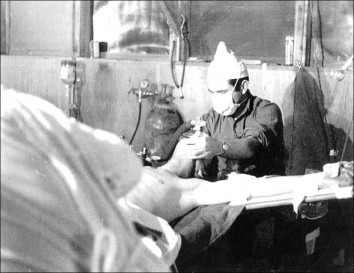
“We got to meet Alan Alda, who played Hawkeye, and that character was based on Dr. Hornberger,” Cathy said. “We met all the stars of the show, and they made us feel so welcome and like we were the real stars. They knew the show was based as least partly on our personal stories, so they made a big deal about us being there, which I couldn’t believe.” And the Drakes both felt the producers of the show paid attention to the details and created a good replication of what it was like in Korea.
“We felt like we were there again,” Dale said. “It brought back so many memories. The truth is, of all the wars we as Americans fought, this one was said to be the bloodiest war of all. There was so much blood and destruction. It wasn’t a pleasant time — how could it be?”
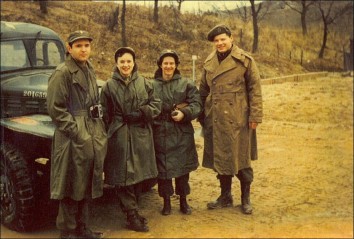
“There certainly were funny times and laughs and friendships, and that was all captured in the show,” Cathy said. “We wouldn’t have made some of our life-long friends without having met them in Korea.”
“But it was a war,” Dale added. “Our MASH unit handled thousands of wounded soldiers, and a lot of lives were lost. During World War II, there was so much talk of war, and Americans really stayed connected to what was happening. By the time of the Korean War, people were so tired of hearing about war and had had enough of it. It’s very sad.”
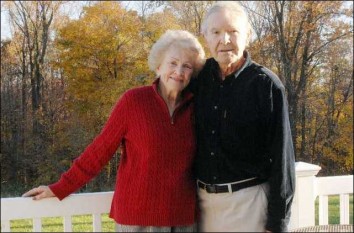
And there’s one thing in particular neither of the Drakes will forget about their time in Korea.
“In the midst of war, we found each other.”



